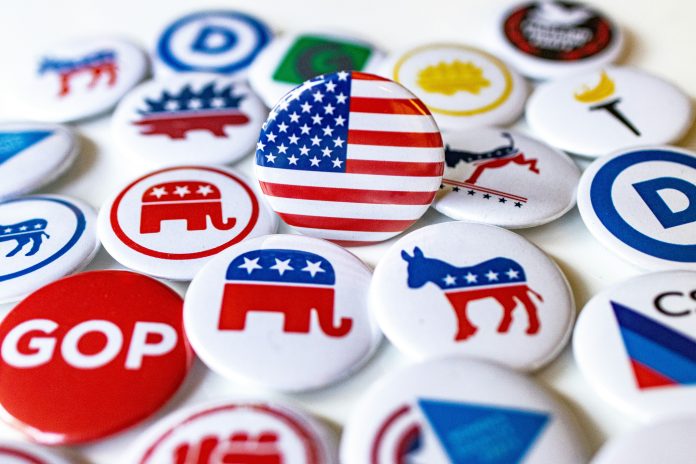
On Oct. 24, DePauw University’s International Student Affairs (ISA) hosted a panel discussion titled, “The Global Impact of U.S. Elections.” Held in the Union Building (UB) Ballroom, the event welcomed a diverse audience of students eager to explore the far-reaching influence of United States politics on the world stage.
The panel featured Professor of Peace and Conflict Studies Glen Kuecker, Political Science Department Chair Deepa Prakash and Hiram L. Jome Professor of Economics and Management Guangjun Qu. Each speaker explained the biggest global impacts of the U.S. presidential election are, both in the days leading up to the election and the leadership turnover.
Kuecker highlighted a “dangerous” trend toward the collapse of democracy, particularly in how the U.S. positions itself in global relations. Meanwhile, Prakash outlined three critical areas of concern, touching on potential shifts in U.S. foreign policy, erosion of human rights norms, especially among LGBTQ+ and vulnerable communities, and the rhetoric on immigration.
Qu emphasized the economic impact of recent U.S. policies, calling this a “very confusing time” given the rising shift toward protectionism, as seen in former U.S. President Donald Trump’s tariffs on Chinese imports. Qu warned that this trend could intensify inflationary pressures already affecting Americans and disrupt the essential U.S.-China diplomatic relationship.
Students eagerly asked speakers questions to understand the broader implications of U.S. politics.
When asked about U.S. involvement in Ukrainian-Russian, Chinese-Taiwanese and inter-Korea tensions, Kuecker questioned the feasibility of the U.S. as a “policing” power. He noted the limitations posed by the $900 billion defense budget. Kuecker challenged the audience to reconsider America’s role as a necessary force for global order and democracy.
Another student raised a question on how global stakeholders seek to influence U.S. elections. Prakash raised thought-provoking examples, pointing to non-state corporations such as Facebook and public figures such as Elon Musk, who significantly alter the landscape of electoral influence.
The panel then addressed how U.S. elections might impact international students. Qu expressed concerns from his interactions with international students, noting that U.S. companies appear increasingly reluctant to sponsor work visas, complicating job prospects.
Prakash pointed to rising xenophobia, while Kuecker applauded international students’ courage to study abroad and offered a sincere apology for the challenges posed by the U.S. immigration system.
After the panel, students further engaged with the speakers over a round of boba tea to reflect on the election’s impact on the world and their own lives.
